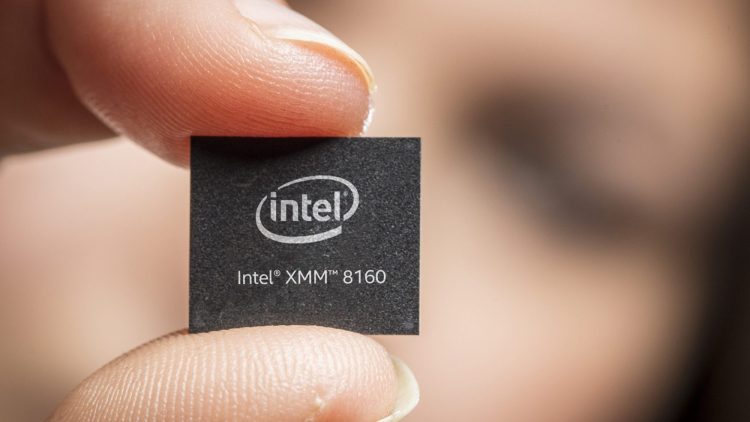Following Intel’s decision in November 2017 to skip its initial 5G modem in favor of a more power-efficient successor, it was clear that devices containing the newer XMM 8160 modem wouldn’t arrive until the first half of 2020. Today, Intel is offering a brief progress report on the XMM 8160’s current development momentum, making clear that it’s still working on the hardware while relying on partners to bring 5G solutions to market.
As of early 2019, Intel says that it’s still working on radio front end chips to support the XMM 8160. The chipmaker says that it’s currently developing its own radio front end module to help the XMM 8160 communicate with 5G millimeter wave networks, and collaborating with Skyworks on “co-optimization” of SkyOne front end modules to support sub-6GHz 5G networks. Verizon and AT&T have already launched millimeter wave 5G networks in the United States, while AT&T, T-Mobile, and Sprint are all planning to launch sub-6GHz 5G networks as well. European and Asian operators are expected to focus primarily but not exclusively on sub-6GHz frequencies for 5G.
Intel’s approach with these parts is somewhat different from its key 5G rival’s. While Qualcomm is preparing to ship its second- and third-generation 5G components to partners, Intel is still working to assemble a full 5G system, which means that customers — particularly Apple — may be working down to the wire for early 2020 product releases. That said, Intel has been working on its own millimeter wave engineering for years, so it’s not starting from scratch, and there’s no reason to suspect that its 5G rollout will encounter further delays.
Beyond phones, Intel also said today that it’s working with Fibocom on the FG100 M.2 Module, a small form-factor module designed to bring the XMM 8160 into devices other than smartphones, including always-connected PCs, industrial automation hardware, and smart city sensors. Separately, Intel is helping Arcadyan, D-Link, Gemtek, and VVDN to build 4G/5G gateway devices that will launch with Intel’s XMM 7560 4G modem, then offer a “seamless upgrade” to the XMM 8160 in 2020.
June 5th: The AI Audit in NYC
Join us next week in NYC to engage with top executive leaders, delving into strategies for auditing AI models to ensure fairness, optimal performance, and ethical compliance across diverse organizations. Secure your attendance for this exclusive invite-only event.
As was the case at CES, Intel does not appear to be making any 5G smartphone or laptop partnership announcements at Mobile World Congress; it will instead focus on 5G-enabling Snow Ridge networking solutions, a Hewitt Lake Xeon D server chip, and an N3000 plug-in FPGA card for 5G traffic acceleration. The company will also host 5G demos at its MWC booth, including immersive media, smart retail, and industrial applications of the next-generation cellular technology.

